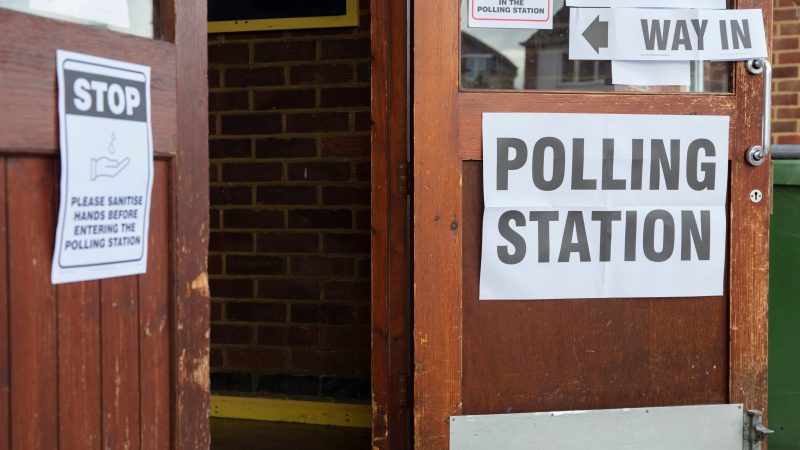
After a chaotic conference season and an underwhelming King’s Speech failed to improve the Conservatives’ position in the polls, No 10 surely hoped that last week’s dramatic reshuffle would show voters that Rishi Sunak was finally steering the ship back on course. But the week that saw Suella Braverman thrown overboard, David Cameron resurrected and the flagship Rwanda plan scuppered seems to have left Sunak’s party in even deeper waters.
Our latest JL Partners Times Radio focus group members were as fed up as they have ever been with the government. We spoke to a mix of swing voters from Rother Valley, Wakefield and Stroud just halfway through the turbulent events of last week, after the reshuffle but before the Supreme Court verdict and slew of resignations from Keir Starmer’s frontbench.
Sunak’s reshuffle underlined his government’s identity crisis
Whilst the reshuffle had achieved an unusual amount of cut-through with these voters, not one of them was positive about it. Far from showing a renewed sense of purpose, they felt that the move was a “knee-jerk response” indicative of a “hectic”, “disorganised” administration that was “jumping from one thing to another” with “no feeling of direction”.
There was a frustration that the Conservatives were again seemingly more concerned with fighting amongst themselves than with governing the country and were just “trying to get one up on each other” and “not focused on key priorities”.
The move might have been praised in parts of the media for signalling that the grown-up moderates were back in charge, but after a rush of recent resets which promised a dizzying array of policies (from banning smoking to scrapping HS2), the public has been left increasingly nonplussed as to what this government wants to achieve and who they are governing for. To these voters, the reshuffle merely underlined this identity crisis.
Braverman’s exit has left the government looking purposeless
Suella Braverman is certainly not popular with the general public as a whole, but after a summer of trying to create a wedge issue out of illegal immigration, her exit from cabinet had left the focus group wondering what the purpose of this government was.
Those who supported her said they were “absolutely dismayed” at the news. To them, she is one of the few politicians who speaks “common sense” and stands up for the “silent majority.” And even those who disagreed with some of her “controversial” stances complained that her departure shows that the government does not stand by its principles and is “just scared of upsetting people”. In the words of one man: “Even those who don’t agree [with her] want a stronger, clearer line.”
There is clearly a desire for politicians that actually say what they believe and act on their convictions, even if they might be unpopular: “Some of the things she said I don’t agree with… but sometimes you have to go against the grain.”
Our focus group was highly unimpressed with Cameron’s return
And what about David Cameron’s return? If anything, they were even less impressed. The Old Etonian’s cabinet comeback seems to have exacerbated existing feelings about Sunak’s wealth: “It’s jobs to the boys all the time. They’re not real people. They’re out of touch.”
To Cameron’s critics, it was a “retrograde step,” and those who were more favourable towards him still said it was probably going to “make things worse” and was “too backwards looking”. When one man said it just “smacks of desperation”, everyone else agreed, with another comparing the government to a “failing business”. The grown-ups might be back in charge; the problem is the public doesn’t seem to like them very much.
But the picture was hardly better for Starmer and Labour
This was the worst of our focus groups for the Conservatives since Sunak became Prime Minister, but things were barely better for Starmer’s Labour, even if they remain 20 points ahead in the polls.
When asked to describe the Labour leader, views ranged from “self-centred” and “untrustworthy” to “flaky”, “indistinct”, “pathetic” and a “slimeball”.
Even those saying they would vote Labour at the next election were damning and dismissed him as “very similar to other politicians”. Across the board, there were complaints that he “doesn’t seem to have any particular plan” and that he just “blows in the wind”.
Apathy may end up being the biggest winner in 2024
What could this widespread disaffection mean when it comes to the next general election? The dissatisfaction with the political mainstream could open the door for smaller parties. Some mentioned Reform, others Laurence Fox.
At the same time as David Cameron has been brought back from the political wilderness, another veteran from the 2016 Brexit wars has headed into the jungle. There was much talk in the group about Nigel Farage and his decision to go on I’m a Celebrity, Get Me Out of Here!, and whilst some called him “frightening” and “controversial”, others said he was “honest,” “a visionary” – someone who can talk “common sense” and “cares about the state of the country”.
Things can change very quickly. Maybe the autumn statement will finally move the dial of public opinion, maybe Starmer will become substantially better liked with the electorate, and maybe Nigel Farage will return and lead a resurgent Reform. Or maybe things might just stay as they are. If that is the case, then apathy may well end up being the biggest winner in 2024, with both parties potentially struggling to persuade people to turn out to vote at all.




More from LabourList
Government abandons plans to delay 30 local elections in England
‘The cost of living crisis is still Britain’s defining political challenge’
‘Nurses are finally getting the recognition they deserve’